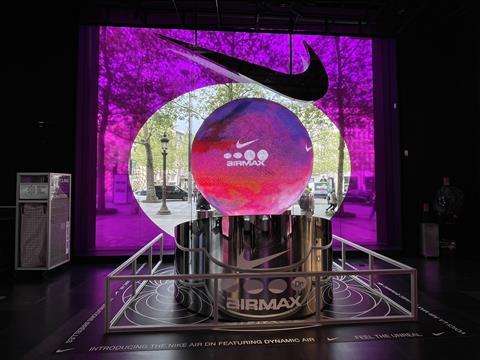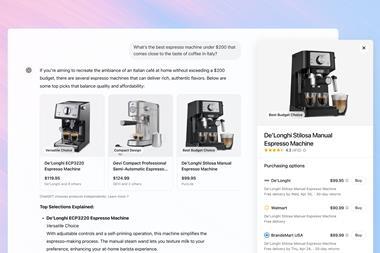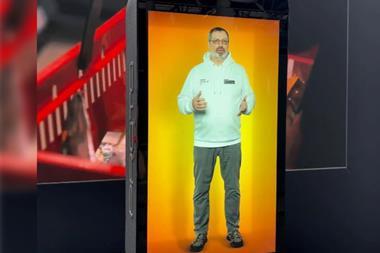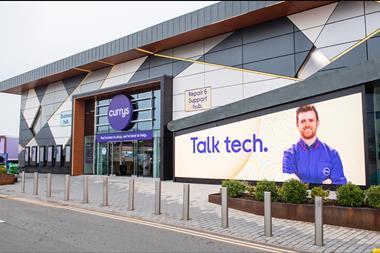With new releases this week from OpenAI and Google, generative AI (Gen-AI) tools are developing rapidly, taking over from voice assistants such as Amazon’s Alexa, and destined to be on every smartphone. As more customers gain access to this dynamic technology, now is the time for retailers to get on board and explore the opportunities.

This week OpenAI unveiled its latest GPT-4o upgrade to ChatGPT, which makes the chatbot more human-like than ever. It is capable of holding natural voice conversations, using the camera to read and help solve maths equations, and handling audio, text, images and video inputs in any combination.
It has also made headlines this week with its ability to express and adapt to different emotions, with a range of voices and a new-found ability to flirt.
Google also announced new upgrades and features for its Gemini AI product, which now enables users to search in new ways with longer questions, more complex queries and photos.
Both technologies will roll out to users in the coming days and weeks. But the opportunity does not end there. Bloomberg reports it is widely anticipated that Apple is nearing a deal with OpenAI to use its features on the iPhone, which could put the powerful chatbot into the hands of millions of users worldwide.
That development, if it goes ahead, will propel Gen-AI usage at a faster rate than ever.
Gen-AI in the retail environment
Customers with new technology in their pockets have disrupted retail in the past. The process of ‘showrooming’ was a thorn in the side of physical retail when customers first began using their smartphones in-store to compare prices against Amazon.
It has taken a while, but now retailers are embracing this technology to create store-enabled mobile apps that drive loyalty and improve the customer experience.
Generative AI tools will deliver another step-change in the technology we all use daily. For example, visual AI search using phone cameras will open up a whole world of different ways for customers to discover and shop for new items.
New Gen-AI tools are already reshaping the retail environment, offering businesses innovative ways to improve staff productivity and to enhance the customer experience – but not every company is yet on board.
A Gartner survey of 644 companies in the US, Germany and the UK in the last quarter of 2023 found that Gen-AI is now the most frequently deployed AI solution (29%) for businesses, and its adoption acts as a catalyst for further expansion of AI within the organisation.
For companies not yet on board, the main barriers to adoption were estimating and demonstrating value, together with a lack of talent or skills. That was also a key takeaway from our Retail Week Innovation Summit last November, where retailers highlighted the need to recruit the right people to their team as a differentiator for success.
Improved customer experience
There are many ways in which Gen-AI tools can improve customer experience for shoppers, ranging from personalised recommendations to virtual try-on and automated content generation for relevant marketing and social media posts.
New search tools using natural language can help customers find precisely what they are looking for across categories, such as “give me outfit suggestions for a wedding in Paris next month” or “find me the best-rated coffee maker between £30 and £40 for delivery tomorrow”. Carrefour, Amazon and Walmart were among the first businesses to introduce these smarter searches as part of a wider roll-out of AI across their businesses.
The growing beauty category is an excellent use case for Gen-AI tools, helping customers find the right shade, match and product amid an often confusing and overwhelming assortment. Sephora’s Virtual Artist uses generative AI to enable customers to ‘try on’ various cosmetics using its mobile app. Boots recently introduced an online beauty assistant, its first foray into Gen-AI, which helps customers with product suggestions that can be bought online or in-store.
In fashion, there are significant opportunities for retailers to minimise returns using virtual try-on tools, helping customers to see how an item will fit and look before buying. Visual AI search will also add new opportunities for discovery online and in-store.
Better customer engagement
Gen-AI is reshaping how businesses can put customers at the heart of their strategy, using personalisation for improved relevance and engagement.
With the right customer data, a virtual consumer panel with segmented personas can be created using AI. Among those using the technology is Heineken, which has centralised its customer data streams internally to allow it to quiz an AI customer ‘panel’ to find the answers to specific queries.
Retail theatre is also being enhanced with Gen-AI at the heart of new digital displays. Ahead of the Paris Olympics, the Nike flagship on the Champs Elysées has developed an AI-powered audiovisual installation to promote the Air Max Pulse sneaker. Five screens in the store display a changing range of futuristic shoe designs, created using AI from interviews with the brand’s top athletes.
Empowered employees
Equipping employees with Gen-AI tools can make them more productive and increase efficiency. Currys this month selected Accenture and Microsoft to support its adoption of AI technologies, which chief executive Alex Baldock described as “the biggest technological leap of our lifetime”.
Many retailers are trialling AI tools to drive employee efficiency, both in the office and on the shop floor. One example is the deployment by M&S of an AI-powered visual compliance solution across 500 stores in September, equipping staff with handheld devices from SymphonyAI to check displays against a planogram and improve the in-store experience for customers.
Meanwhile, German grocer Rewe created a 3D hologram of chief digital innovation officer Robert Zores, who is available to answer employee questions using AI.
At the Retail Technology Show in London last month, the audience’s attention was grabbed by a hologram customer service bot named Luna from HyperVSN, which was connected to ChatGPT to answer customer queries in real-time.
Maximised return on investment
The possibilities of Gen-AI are huge, ranging from big to small and encompassing improved online product listings to more engaging marketing and advertisements, improving sizing accuracy, and many ways to increase supply chain efficiency – all boding well for maximised return on investment.
For some businesses, the scale of the opportunity may seem overwhelming, but that is not a reason not to start. The most important thing, as technology is moving so rapidly, is to keep up, start small and focus on where the greatest business benefits and opportunities lie.
Those who have been piloting new technologies for a while all agree that companies need to: start where the technology can make the biggest difference; start small but scale fast; think globally to avoid re-engineering solutions; and start now.
People and technology working together will be the ultimate differentiator, as there is no doubt that the advance of this technology will fundamentally change the retail landscape.





























No comments yet